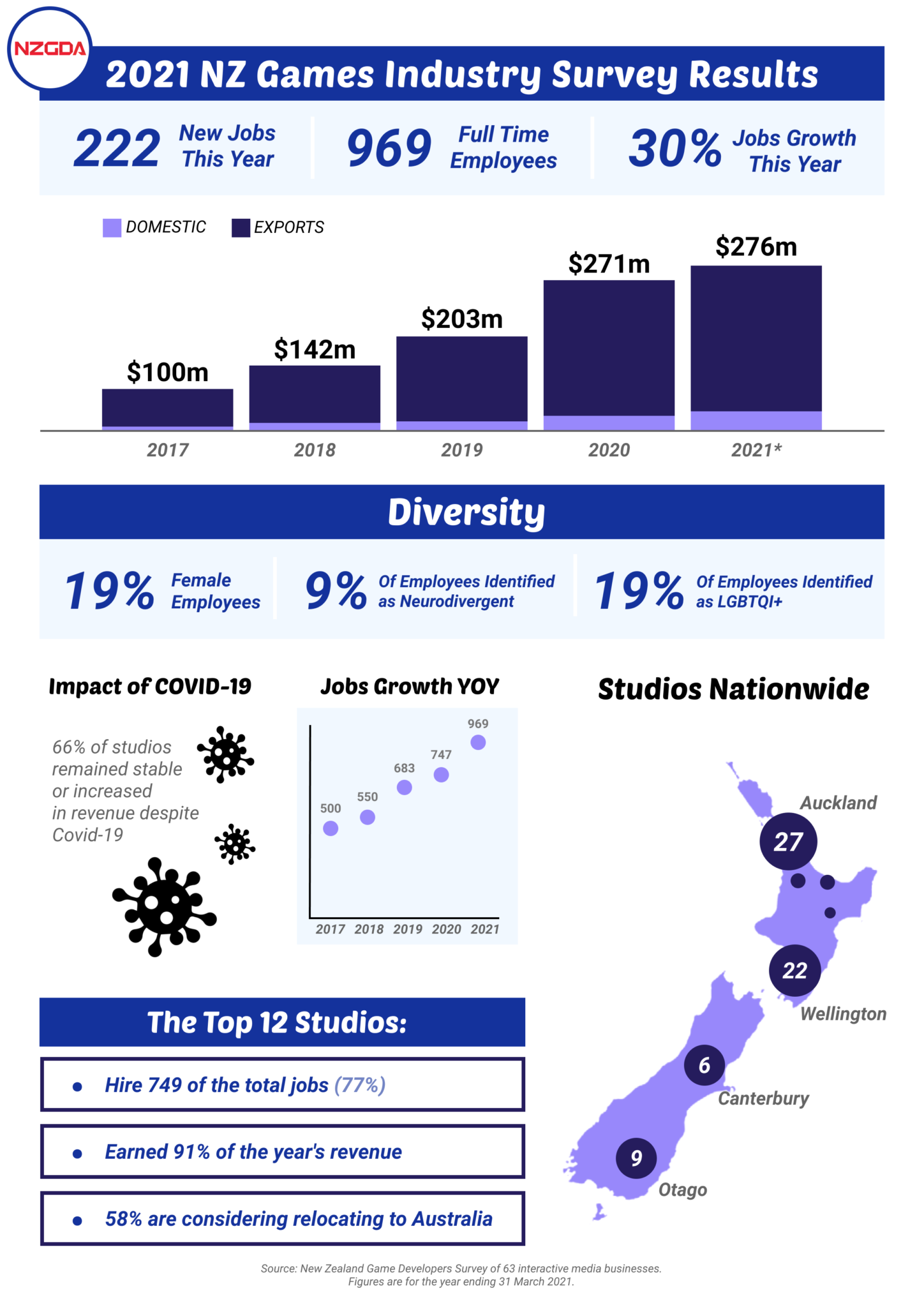Table of Contents
New Zealand Game Developers Association (NZGDA)
Existing government measures won’t stop one of our fastest-growing sectors moving to Australia.“Existing government policies won’t stop New Zealand gaming and interactive media companies from choosing to expand in Australia instead of New Zealand,” New Zealand Game Developers Association (NZGDA) Chairman Chelsea Rapp said yesterday.
In Australia, from July 1, 2022, a 40%-plus incentive (30% Digital Games Tax Offset (DGTO)[1] plus 10-15% State rebates) will apply. Every $1 million of qualifying expenditure could see a $400,000 cash benefit to NZ companies that move resources to Australia rather than stay in New Zealand. More than 20 similar schemes with 25% to 40% rates exist worldwide.
“I think there are many myths and misunderstandings about Government so-called support for gaming and interactive media.
“Existing New Zealand government initiatives, cited by the government as helpful, are not as applicable to the gaming and interactive media sector as the government suggest. While we’re very hi-tech, digital and innovative, what we do doesn’t actually meet the Government definitions of R&D, for instance. We fall through the cracks,” said Rapp.
She cited these examples:
- Current R&D tax incentives are not fit for purpose and exclude most activities of the gaming and interactive media sector.
- The existing 20% Post Digital & Visual Effects Grant, part of the NZ Screen Production Grant, specifically excludes the gaming and interactive media sector.
- NZGDA believes that new Callaghan Innovation funding – the Arohia/Innovation Trailblazer grant and the new R&D grant – are also unlikely to apply to gaming and interactive media projects.
“The Government’s Digital Technologies Industry Transformation Plan (ITP) which highlights interactive media as a significant growth opportunity and a sector to focus on, will simply become a disappointment, and not achieve anything material,” said Rapp.
“The Government’s recent Budget allocated funding to “tell the New Zealand Tech Story[2]”. But, while we are spending taxpayers money trying to attract offshore business and investment to New Zealand, our own existing gaming and interactive media companies will leave or choose to expand their operations offshore due to a lack of support.
“The Government’s ITP programme was intended to address gaps and provide all-of-Government coordination for key sectors, but we need real action right now from government to keep our sector here.”
“We have been communicating with the Government on this since the Australian government first announced its initiatives in its 2021 budget. While Hon David Clark, as Minister for Digital Economy and Communications, is a supportive Minister of our sector, no progress has been made by Government in response to the very real threat posed by the Australian policy change.
“We urge the Government to take urgent action if it is serious about one of New Zealand’s fastest-growing sectors, which is projected to earn revenue of $1billion[3] by 2025 and create hundreds of green, high-value jobs.
“We have suggested practical solutions that the government should implement which include:
- 30% gaming and interactive digital media grant (lower than Australia’s).
- Making interactive media and video games eligible for the existing 20% Post Digital & Visual Effects Grant, part of the NZ Screen Production Grant.
- Expanding the successful CODE pilot in Dunedin across NZ via an Interactive Industry Development Programme.
“Interactive media is currently excluded from existing Government screen and R&D programmes, but the Association believes that creating an incentive scheme for the gaming industry will not only pay for itself, but will also result in positive gains for the Government.
On average, each job in the New Zealand gaming industry generates over $285,000 of economic activity, making it one of our most productive sectors. Our sector already pays more tax than the scheme would cost.”
“We know the problem and we are proposing a pragmatic solution. The time for action is now,” Chelsea Rapp concluded.

For more data on New Zealand’s interactive media sector see: https://nzgda.com/news/survey2021/









